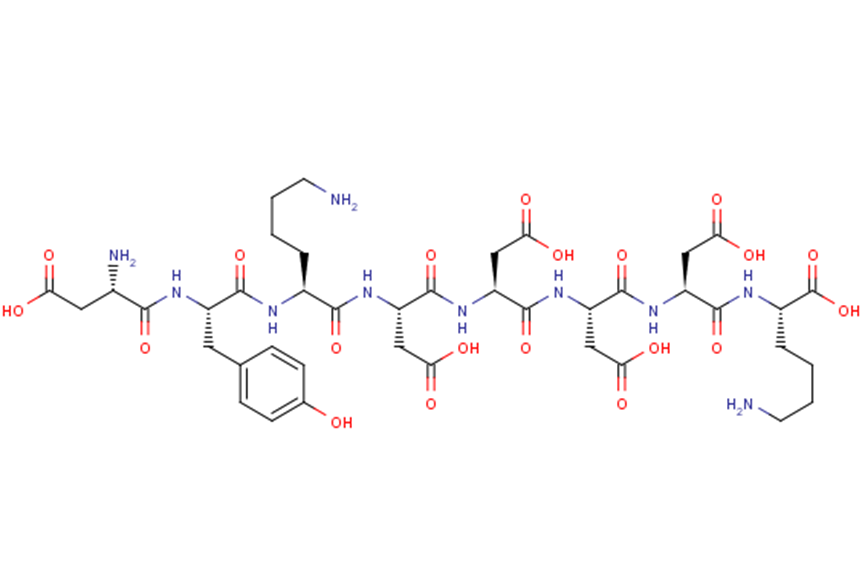
FLAG peptide
CAS No. 98849-88-8
FLAG peptide( —— )
Catalog No. M29972 CAS No. 98849-88-8
FLAG peptide is an eight amino acids peptide (Asp-Tyr-Lys-Asp-Asp-Asp-Asp-Lys) with an enterokinase-cleavage site used for the purification of recombinant proteins.
Purity : >98% (HPLC)
 COA
COA
 Datasheet
Datasheet
 HNMR
HNMR
 HPLC
HPLC
 MSDS
MSDS
 Handing Instructions
Handing Instructions
| Size | Price / USD | Stock | Quantity |
| 5MG | 51 | In Stock |


|
| 10MG | 87 | In Stock |


|
| 25MG | 207 | In Stock |


|
| 100MG | 470 | In Stock |


|
| 200MG | Get Quote | In Stock |


|
| 500MG | Get Quote | In Stock |


|
Biological Information
-
Product NameFLAG peptide
-
NoteResearch use only, not for human use.
-
Brief DescriptionFLAG peptide is an eight amino acids peptide (Asp-Tyr-Lys-Asp-Asp-Asp-Asp-Lys) with an enterokinase-cleavage site used for the purification of recombinant proteins.
-
DescriptionFLAG peptide is an eight amino acids peptide (Asp-Tyr-Lys-Asp-Asp-Asp-Asp-Lys) with an enterokinase-cleavage site used for the purification of recombinant proteins.
-
In Vitro——
-
In Vivo——
-
Synonyms——
-
PathwayOthers
-
TargetOther Targets
-
Recptor——
-
Research Area——
-
Indication——
Chemical Information
-
CAS Number98849-88-8
-
Formula Weight1012.97
-
Molecular FormulaC41H60N10O20
-
Purity>98% (HPLC)
-
SolubilityIn Vitro:?H2O : 100 mg/mL (98.72 mM)
-
SMILES——
-
Chemical Name——
Shipping & Storage Information
-
Storage(-20℃)
-
ShippingWith Ice Pack
-
Stability≥ 2 years
Reference
molnova catalog



related products
-
Suspenoidside B
Suspenoidside B possesses strong hepatoprotective activities against the damage in HepG2 cell.
-
SMS2-IN-1
SMS2-IN-1 is a highly selective inhibitor of sphingomyelin synthase 2 (SMS2)(IC50 of 6.5 nM).
-
Caspase 1 Substrate ...
Ac-YVAD-AMC is an inhibitor for caspase. Ac-YVAD-AMC inhibits bacteria-induced cell death of hypersensitive response (HR) cells.



 Cart
Cart
 sales@molnova.com
sales@molnova.com


